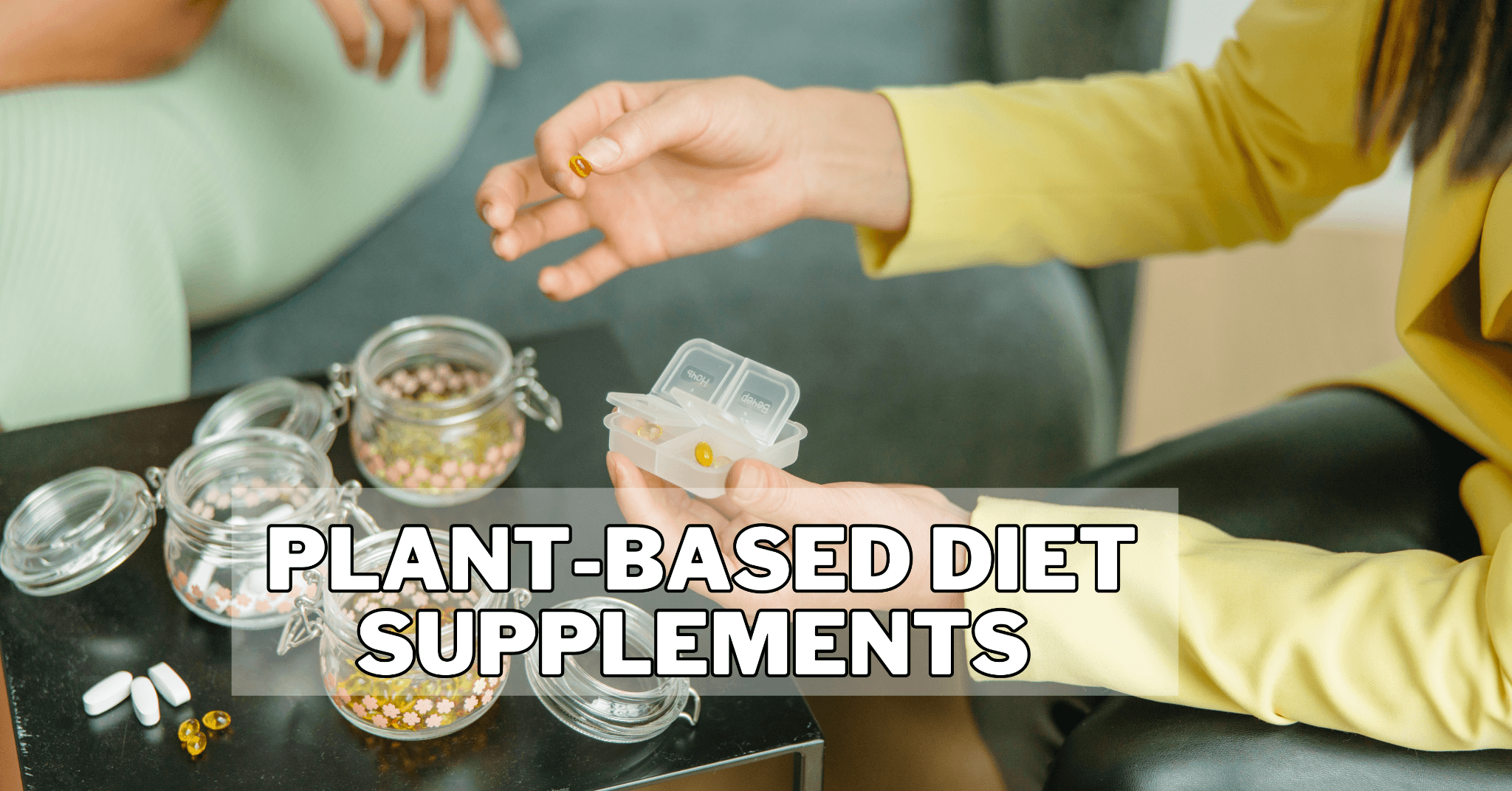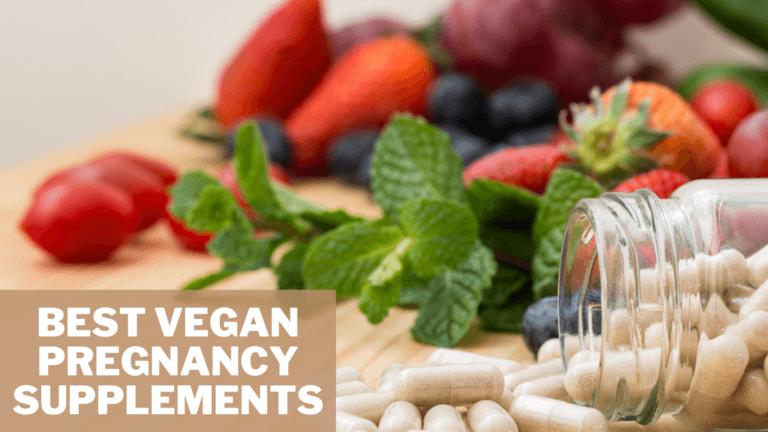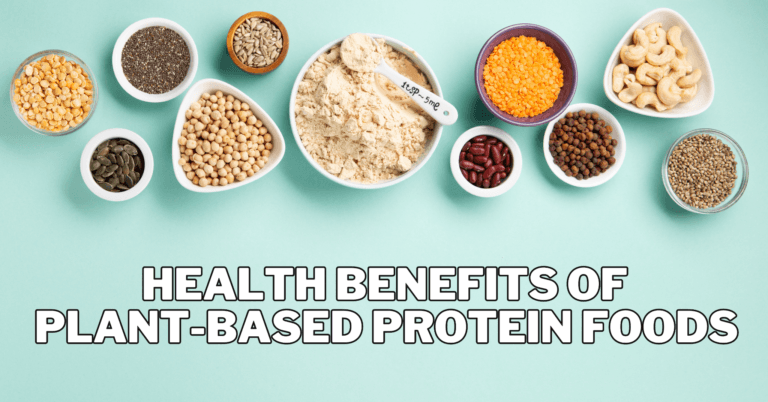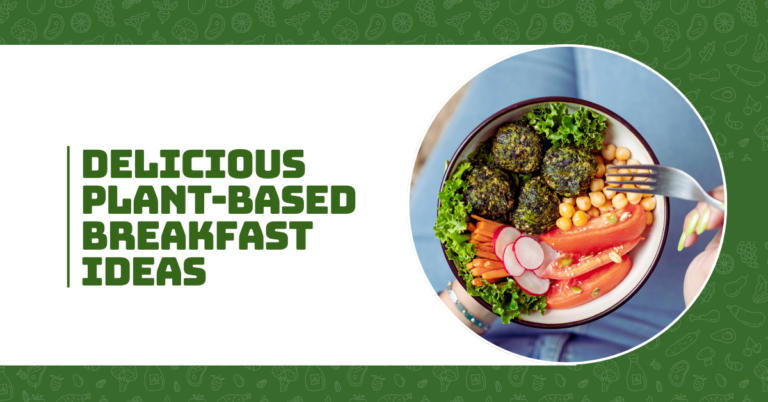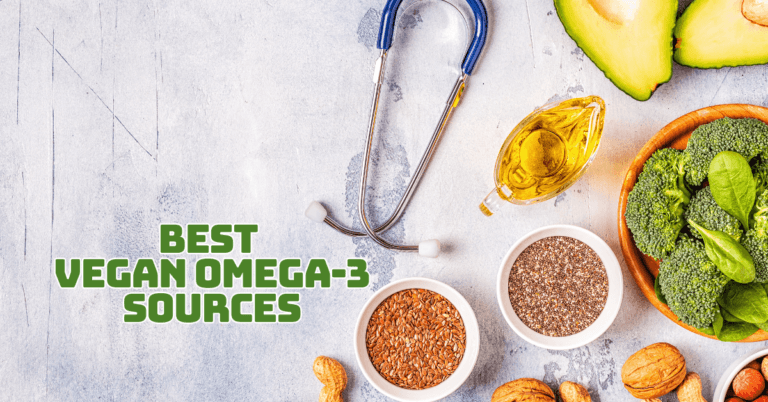Best Plant-Based Diet Supplements
Best Plant-Based Diet Supplements
The journey toward optimal health and well-being in plant-based diets is a conscious and compassionate choice.
As individuals embark on this path, they often encounter questions about whether their dietary choices provide all the essential nutrients their bodies require.
This is where plant-based diet supplements step into the spotlight, offering a bridge to fill potential nutrient gaps and amplify the benefits of a plant-powered lifestyle.
In this enlightening exploration, we delve into plant-based diet supplements, shedding light on their role in supporting vitality, addressing nutritional needs, and ensuring a well-rounded approach to nourishment.
From essential vitamins and minerals to specialized formulations, we unravel the diverse world of supplements that harmonize with plant-based principles.
Join us on this journey of discovery as we navigate through the options, decode labels, and empower ourselves with the knowledge to make informed choices.
Whether you're a seasoned plant-based advocate or just beginning your journey, the world of plant-based diet supplements offers a realm of possibilities to enhance your well-being and make your nutritional journey even more rewarding.
Benefits Of A Plant-Based Diet
A plant-based diet offers a plethora of benefits that extend beyond individual health and well-being.
Here are the details on some of the key advantages of adopting a plant-based lifestyle:
1. Improved Heart Health
Plant-based diets are rich in heart-healthy foods like fruits, vegetables, whole grains, nuts, and seeds.
They have naturally low cholesterol and saturated fat levels, which helps reduce the risk of heart disease, hypertension, and stroke.
2. Weight Management
Plant-based diets are generally lower in calories and saturated fats than omnivorous diets. The high fibre content of plant-based meals encourages feelings of fullness, which helps with weight management and discourages overeating.
3. Lowered Risk Of Chronic Diseases
A plant-based diet can lower your chance of acquiring chronic conditions like type 2 diabetes, some malignancies (including colon and breast cancer), and metabolic syndrome, according to research.
4. Improved Digestion
The abundance of dietary fibre in plant-based foods supports healthy digestion by promoting regular bowel movements and maintaining gut health.
5. Enhanced Nutrient Intake
Plant-based diets are typically rich in vitamins, minerals, antioxidants, and phytochemicals crucial in maintaining overall health and protecting against chronic diseases.
6. Reduced Environmental Impact
Plant-based diets have a smaller carbon footprint and require less land, water, and other resources than animal-based diets. Choosing plant-based options contributes to sustainability and environmental preservation.
7. Animal Welfare And Ethics
Adopting a plant-based diet aligns with ethical values by reducing demand for animal agriculture, often involving practices that raise concerns about animal welfare and cruelty.
8. Digestive Ease
Plant-based diets can be easier to digest due to their lower saturated fat content and higher fibre content, which can alleviate issues like indigestion and acid reflux.
9. Inflammation Reduction
Many plant-based foods have anti-inflammatory properties due to their high antioxidant content, potentially reducing the risk of chronic inflammation-related diseases.
10. Improved Skin Health
A diet rich in fruits and vegetables provides essential nutrients that promote healthy skin, potentially leading to a clearer complexion and a youthful appearance.
11. Improved Brain Health
Leafy greens, berries, and omega-3-rich diets are plant-based foods that enhance brain health and cognitive function and may lower the risk of neurodegenerative illnesses.
12. Energy Boost
The nutrient-dense nature of plant-based foods provides a sustained energy source, enhancing vitality and reducing energy crashes often associated with processed foods.
13. Mood Enhancement
Plant-based diets that emphasize whole foods and avoid excessive sugar and processed foods have been linked to improved mental well-being and a reduced risk of depression.
14. Longevity
Studies suggest that individuals following plant-based diets may have a lower risk of premature mortality, contributing to a longer and healthier life.
It's important to note that the benefits of a plant-based diet can vary based on individual choices and dietary patterns.
While a plant-based lifestyle can offer numerous advantages, ensuring a balanced and well-planned diet to meet all nutritional needs is essential.
Personalized advice for achieving optimal health on a plant-based diet can be obtained by speaking with a certified dietitian or other healthcare expert.
Introducing Plant-Based Diet Supplements
Navigating the vast landscape of plant-based nutrition is like embarking on a culinary adventure, exploring a world of flavours, textures, and vibrant colours that celebrate the bountiful offerings of nature.
As more individuals embrace the benefits of a plant-based lifestyle, one question arises: How can we ensure our bodies receive all the essential nutrients they need for optimal health and vitality?
Enter the world of plant-based diet supplements, where science meets nature, offering a bridge to bridge the nutritional gaps and elevate our well-being to new heights. So, let’s get started:

1. Vitamin B12
Vitamin B12, a crucial water-soluble vitamin, plays a pivotal role in maintaining healthy nerve function, supporting DNA synthesis, and aiding in the production of red blood cells.
While it's abundant in animal-derived foods, individuals adhering to a plant-based diet may need help obtaining adequate amounts due to the limited presence of B12 in plant sources.
To prevent deficiency-related complications such as anemia and neurological issues, supplementing vitamin B12 becomes paramount.
Sublingual B12 supplements, fortified foods like plant-based milk and cereals, and B12-fortified nutritional yeast are viable options for sufficient intake.
Regular B12 monitoring through blood tests is recommended to assess levels and adjust supplementation if needed.
While a well-planned plant-based diet can provide an array of nutrients, supplementing vitamin B12 is a proactive measure to safeguard overall health and mitigate the potential risks associated with its deficiency in a plant-based lifestyle.

2. Iron Supplementation
Iron is vital, carries oxygen throughout the body, and supports various physiological processes.
While plant-based diets offer a plethora of iron-rich options such as lentils, beans, tofu, nuts, seeds, and dark leafy greens, it's important to note that the type of iron found in plant sources, known as non-heme iron, is not as efficiently absorbed by the body as the heme iron found in animal products.
To optimize iron intake, individuals following a plant-based diet can focus on combining iron-rich foods with vitamin C-rich foods, which enhances non-heme iron absorption.
Cooking with cast iron pans can infuse small amounts of iron into foods. However, due to factors like individual iron requirements, absorption inhibitors, and dietary preferences, some people may need help to meet their iron needs solely through food sources.
An iron supplement may be considered, particularly for individuals with increased iron demands, such as athletes, menstruating individuals, or pregnant women.
Consulting with a healthcare professional before starting iron supplementation is recommended, as they can assess your iron status and provide guidance on appropriate dosages.
Combining iron-rich foods, absorption-enhancing strategies, and potential supplementation, a balanced approach can ensure that those on plant-based diets meet their iron requirements and maintain optimal health.

3. Calcium Supplementation
Calcium is necessary for keeping healthy bones, teeth, and other cellular processes. Although calcium is frequently linked with dairy products, plant-based diets can also provide a variety of calcium-rich foods.
Almond, soy, or oat milk that has been fortified is a great calcium-rich substitute for regular dairy. Kale, collard greens, and bok choy are a few examples of dark, leafy greens high in calcium.
Almonds, chia, and sesame seeds are nuts with good lipids and calcium. The calcium-rich paste known as tahini, produced from powdered sesame seeds, can be a pleasant addition to foods and dressings.
However, people who don't have easy access to these calcium-rich plant foods or have higher calcium requirements could think about taking calcium supplements.

4. Omega-3 Fatty Acids Supplementation
Omega-3 fatty acids are essential for maintaining cardiovascular health, supporting brain function, and mitigating inflammation.
While plant-based diets offer a valuable source of alpha-linolenic acid (ALA) from flaxseeds, chia seeds, and walnuts, the conversion of ALA to the longer-chain omega-3s (DHA and EPA) can be limited.
As these longer-chain omega-3s are crucial for optimal heart and brain health, incorporating algae-based DHA and EPA supplements can offer a direct and reliable source.
Algae, a primary source of DHA and EPA, bypasses the need for fish-derived supplements and aligns with the principles of a plant-based lifestyle.
By including algae-based omega-3 supplements, individuals can bridge the potential gap between ALA intake and the vital benefits of DHA and EPA, safeguarding against deficiencies and promoting a holistic approach to overall health.
As with other nutrients, consulting a healthcare professional for personalized advice on omega-3 supplementation is recommended to tailor intake to individual health goals and needs.

5. Zinc Supplementation
Plant-based diet supplements offer a valuable solution for individuals seeking to address potential zinc deficiencies within their vegan lifestyle.
Zinc is a vital mineral crucial in various bodily functions, including immune system function, wound healing, and cellular metabolism.
While zinc is available in plant sources such as legumes, nuts, seeds, and whole grains, its bioavailability can be affected by factors like phytates, which can hinder absorption.
Plant-based diet supplements containing zinc can be a practical choice to ensure adequate zinc intake.
These supplements often provide zinc in zinc gluconate, zinc citrate, or zinc picolinate, which are more readily absorbed by the body than the zinc found in some plant foods.
Supplements may also include other essential nutrients that enhance zinc absorption, such as vitamin C.
Before adding zinc supplements to your diet, it's important to speak with a healthcare provider because too much zinc can interfere with the absorption of other minerals and have unfavourable effects.
Additionally, aiming for a well-balanced vegan diet that includes a variety of foods high in zinc might enhance the advantages of supplementation.

6. Selenium Supplementation
Plant-based diet supplements of selenium offer a targeted approach to addressing potential selenium deficiencies in individuals following a vegan lifestyle.
Selenium is an essential trace mineral antioxidant, supporting immune system health and thyroid function and protecting cells from oxidative stress.
While selenium can be found in plant foods like nuts, seeds, whole grains, and legumes, the selenium content in these foods can vary depending on the soil content in which they are grown.
Supplements containing selenium often provide selenomethionine, which is well-absorbed by the body and offers optimal bioavailability.
Plant-based selenium supplements are particularly useful for people with limited access to animal-derived sources of selenium, such as seafood and meat.
However, it's important to approach supplementation cautiously and consult a healthcare professional to determine individual needs, as excessive selenium intake can have negative health effects.

7. Iodine Supplementation
Iodine is a trace mineral for thyroid and metabolic health. The absence of iodized salt and the infrequent ingestion of iodine-rich foods like seafood occasionally result in iodine deficiencies in plant-based diets, even though they have many positive health effects.
Iodine is necessary for the thyroid gland to create hormones that support and control numerous body functions and metabolism.
If you're not incorporating iodine sources like iodized salt or sea vegetables (such as seaweed) into your plant-based diet, consider an iodine supplement to prevent deficiencies.
However, it's important to approach iodine supplementation cautiously, as excessive intake can adversely affect thyroid function.
Consulting with a healthcare professional is crucial before adding iodine supplements. Your healthcare provider can assess your iodine levels, dietary habits, and health status to determine whether supplementation is necessary and at what dosage.
Integrating iodine-rich foods and iodized salt into your diet whenever possible is also recommended.
By carefully balancing dietary sources and potential supplements, individuals on a plant-based diet can support their thyroid health and ensure optimal iodine intake for overall well-being.
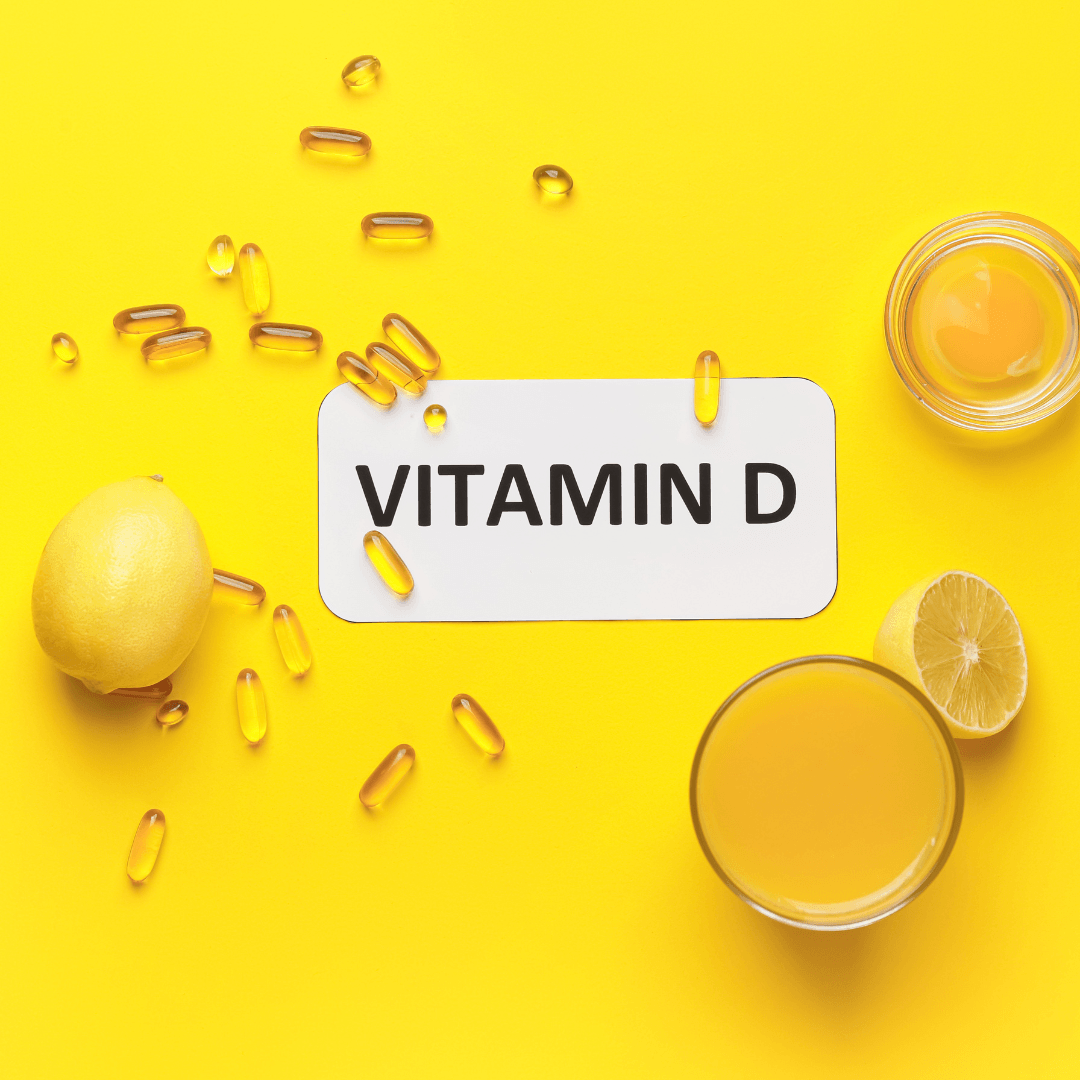
8. Vitamin D Supplementation
Vitamin D is a fat-soluble vitamin crucial in maintaining healthy bones, supporting immune function, and promoting overall well-being.
While our bodies can synthesize vitamin D when exposed to sunlight, many factors, such as geographic location, weather conditions, and lifestyle choices, can hinder adequate sun exposure.
This concern extends to individuals following plant-based diets, as some plant foods contain limited amounts of vitamin D.
Consequently, a vitamin D supplement could be beneficial, especially if you reside in regions with limited sunlight availability.
Vitamin D deficiency can weaken bones, increase infection susceptibility, and other health issues.
Consulting with a healthcare professional before starting a supplement regimen is recommended, as they can assess your vitamin D needs through blood tests and offer personalized guidance.
A supplement can be a valuable addition to your plant-based diet strategy, working synergistically with the nutrients you obtain from plant foods and sunlight exposure.
Striking a balance between sunlight exposure, dietary sources, and appropriate supplementation can help you maintain optimal vitamin D levels and support your bone health, immune system, and overall vitality.

9. Protein
Protein is a cornerstone nutrient for various bodily functions, including muscle repair, immune support, and enzyme production.
While plant-based diets offer a wide array of protein-rich sources such as legumes, tofu, tempeh, nuts, and seeds, certain individuals with specific dietary goals or increased protein demands may explore unique avenues to ensure optimal intake.
Athletes, bodybuilders, or individuals engaged in rigorous physical activities may require higher protein levels to support muscle growth and recovery.
In these cases, incorporating a plant-based protein supplement can be a valuable addition to their nutritional regimen.
These supplements are often derived from sources like peas, rice, hemp, or soy, and they come in various flavours and forms, including powders and ready-to-drink shakes.
Choosing a plant-based protein supplement helps fulfill elevated protein needs and aligns with the values of a plant-centric lifestyle.
As with any dietary addition, selecting high-quality supplements from reputable brands is important, and consulting a healthcare professional or registered dietitian can offer personalized guidance on protein intake, supplement usage, and overall diet planning.

10. Magnesium Supplementation
Magnesium, a vital mineral, maintains numerous physiological processes, including muscle contraction, nerve transmission, and energy metabolism.
While plant-based diets encompass an array of magnesium-rich foods like nuts, seeds, whole grains, and dark leafy greens, there are instances where a unique approach might be considered.
Individuals who face challenges in meeting their magnesium requirements due to dietary preferences, restrictions, or higher physiological demands might find a plant-based magnesium supplement to be a beneficial addition.
Plant-derived magnesium supplements are available in various formulations, such as magnesium citrate or magnesium glycinate, offering a versatile way to bridge potential gaps in intake.
Incorporating such a supplement can be particularly relevant for those with specific health conditions who experience symptoms of magnesium deficiency or engage in activities that lead to increased magnesium depletion, like strenuous exercise or stress.
It's important to approach supplementation mindfully, seeking guidance from healthcare professionals or registered dietitians to ensure that the supplement choice and dosage align with individual needs.
By embracing a unique approach to magnesium supplementation within the framework of a plant-based diet, individuals can further optimize their magnesium levels and support overall health and well-being.
Conclusion
While a plant-based diet offers many health benefits and nutrient-rich options, thoughtfully incorporating supplements can enhance its effectiveness in meeting individual nutritional needs.
Plant-based diet supplements serve as targeted allies, filling potential gaps and ensuring that essential vitamins and minerals are adequately obtained.
However, it's crucial to approach supplementation with mindfulness and a solid understanding of one's dietary habits, lifestyle, and specific nutrient requirements.
Supplements should never replace the vibrant array of whole, nutrient-dense foods that form the foundation of a plant-based diet.
Instead, they should complement this dietary framework, strategically addressing areas where natural sources might fall short.
By focusing on whole foods, fostering gut health, and integrating supplements judiciously, individuals can create a comprehensive approach that optimizes nutrient absorption, supports overall well-being, and empowers them to thrive on their plant-based journey.
As with any dietary choices, seeking guidance from healthcare professionals or registered dietitians is invaluable, ensuring that supplement usage aligns seamlessly with individual health goals and contributes to a flourishing plant-based lifestyle.
I trust you enjoyed reading the article about the Best Plant-Based Diet Supplements. Would you please stay tuned? More blog posts will be posted very shortly.
JeannetteZ
>>>Please click here to read my Vegan Travel Guides To World Destinations<<<
>>>Want To Learn How To Create Delicious, Cruelty-Free, Healthy AND 100% Vegan Meals? Try These Awesome Vegan Cooking Courses With A Free 7-DAY MEMBERSHIP<<<
Your Opinion Is Important To Me
Do you have thoughts, ideas, or questions? I would love to hear from you. Would you mind leaving me your questions, experiences, and remarks about the Best Plant-Based Diet Supplements in the comments section below? You can also email me at Jeannette@LivingTheVeganLifestyle.org.
Disclosure
This post may contain affiliate links. I earn from qualifying purchases as an Amazon Associate and other affiliate programs. Please read my full disclosure.
You might also enjoy these blog posts:
10 Best Cruelty-Free Organic Vegan Supplements
Best Vegan Omega 3 Supplement Brands
Freshfield Vegan Omega 3 Review
Different Types Of Vegan Diets – An Easy Guide

